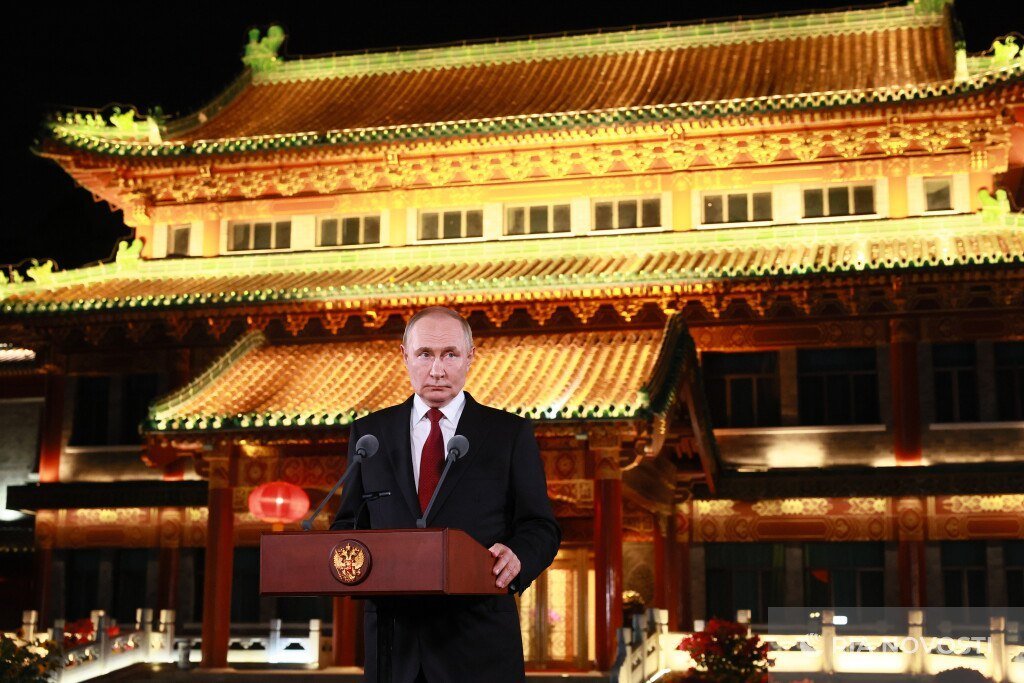Russia–China Pipeline Deal Based on Market Rules, Not Charity: Russian Prez Putin Tells Media
The Power of Siberia 2 natural gas pipeline emerged as the defining outcome of Russian President Vladimir Putin’s official four-day visit to China, with the Russian leader confirming that a deal had been reached with Beijing to expand energy exports through Mongolia.
 |
| Image Source: NomNomTubeTub on X |
“There is no charity on either side,” Putin said.
“These are mutually beneficial agreements implemented on market principles, using objective pricing formulas specific to the region.”
The Power of Siberia 2 project -- expected to deliver up to 50 billion cubic metres of gas annually -- would more than double Russia’s current pipeline exports to China.
Gazprom, Russia’s state-owned energy giant, currently supplies gas through the existing Power of Siberia pipeline in eastern Siberia, capped at 38 bcm annually.
Putin said the new agreement reflects strong fundamentals in China’s economy despite a global slowdown, noting sustained growth in energy demand.
“China continues to be a global growth driver, with over 5% GDP growth. That translates into greater demand for energy -- and we have the capacity to meet it,” he said.
Putin denied speculation that Russia’s pivot to China was driven by political isolation, insisting the agreement had been “in the works for years” and driven by commercial calculations.
“It was not timed to this meeting. It is simply the outcome of long work by economic agents on both sides,” he said.
The Russian president also noted that pricing would be determined not by current market fluctuations but by a specific regional formula.
“The Chinese side receives gas at balanced, market-linked prices -- not inflated, as in the eurozone. And the supplies are reliable,” he said.
The agreement forms part of a wider economic package signed in Beijing this week, which includes more than 20 cooperation deals across energy, nuclear, space, AI, and agriculture.
While officials on both sides have framed the growing Russia–China partnership as rooted in historical ties and multipolarity, Putin’s press interaction avoided overt political messaging.
Still, the Kremlin leader acknowledged the strategic value of China as a market, particularly as European gas demand flattens. “Gazprom is gaining access to new markets.
And with this route through Mongolia, we’re talking about over 100 billion cubic metres (of future total export capacity),” he said.
▶️ Putin’s Message to World After Visit to China: Full Press Conference 👇 pic.twitter.com/573gFFpB42
— Sputnik Africa (@sputnik_africa) September 3, 2025
The Russia–China energy pivot comes as both countries face Western pressure on multiple fronts. Beijing is navigating U.S.-led tariffs and tech restrictions, while Moscow continues to face sanctions over its actions in Ukraine.
Yet both leaders used their joint appearances this week to frame their partnership as a pillar of a rebalanced world order.
While most of the Beijing summit focused on cooperation, Putin’s remarks to the media stayed narrowly on economics and energy.
The Power of Siberia 2 deal, he implied, was not a reaction to geopolitical shifts but a recognition of long-term regional realities.
“Everyone is satisfied and happy with this result,” he said. “Truth be told, I am, too.”
